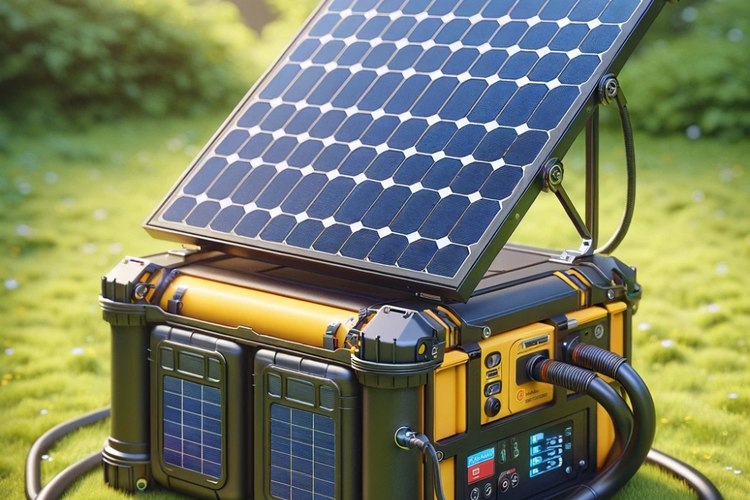Power Generators: Understanding Types, Applications, and Considerations
Power generators are essential equipment for providing electricity in various settings, from residential backup to industrial applications. These devices convert mechanical energy into electrical energy, ensuring a reliable power supply when the main grid is unavailable or in off-grid locations. This article explores different types of power generators, their applications, and key considerations for businesses and individuals.

What are commercial diesel generators and their applications?
Commercial diesel generators are robust power solutions designed for businesses and industrial use. These generators are known for their reliability, efficiency, and ability to handle heavy loads. They find applications in various sectors, including:
-
Healthcare facilities: Hospitals and clinics rely on diesel generators for uninterrupted power supply during emergencies.
-
Data centers: These generators ensure continuous operation of critical IT infrastructure.
-
Manufacturing plants: Industrial processes require consistent power, which diesel generators can provide during outages.
-
Construction sites: Temporary power needs on construction projects are often met with diesel generators.
-
Retail and hospitality: Large stores and hotels use these generators to maintain operations during blackouts.
Commercial diesel generators offer long running times, fuel efficiency, and the capacity to handle sudden load changes, making them ideal for businesses that cannot afford power interruptions.
How do industrial backup power solutions benefit businesses?
Industrial backup power solutions are critical for maintaining business continuity and protecting against financial losses due to power outages. These systems offer several benefits:
-
Minimized downtime: Automatic transfer switches enable seamless power transition during outages, reducing operational disruptions.
-
Equipment protection: Steady power supply prevents damage to sensitive machinery and electronics from sudden shutdowns or power surges.
-
Safety assurance: Emergency lighting and critical systems remain operational, ensuring employee and customer safety.
-
Data preservation: Uninterrupted power keeps servers and data storage systems running, preventing data loss.
-
Regulatory compliance: Many industries are required by law to have backup power systems in place.
By investing in robust backup power solutions, businesses can maintain productivity, protect assets, and ensure customer satisfaction even during unexpected power disruptions.
What features and considerations are important for off-grid diesel generators?
Off-grid diesel generators are designed for use in remote locations without access to the main power grid. When selecting an off-grid diesel generator, consider the following features and factors:
-
Fuel efficiency: Look for generators with advanced engine technology that optimizes fuel consumption.
-
Durability: Choose models built to withstand harsh environmental conditions and extended use.
-
Capacity: Ensure the generator’s output matches your power requirements with some headroom for future growth.
-
Noise levels: Consider sound-attenuated models for residential or noise-sensitive areas.
-
Portability: For temporary installations, opt for generators with lifting points or trailer-mounted designs.
-
Maintenance requirements: Select generators with easy access to serviceable parts and long service intervals.
-
Emissions compliance: Verify that the generator meets local environmental regulations for off-grid use.
-
Automatic start/stop features: These can help conserve fuel and extend generator life.
Careful consideration of these factors will help in selecting an off-grid diesel generator that meets specific needs while ensuring reliability and efficiency.
How do grid-tied solar systems with battery backup work?
Grid-tied solar systems with battery backup offer a hybrid solution that combines the benefits of solar power with the reliability of battery storage. Here’s how they work:
-
Solar panel generation: Photovoltaic panels convert sunlight into DC electricity.
-
Inverter conversion: A grid-tie inverter converts DC to AC power for use in the home or business.
-
Grid connection: Excess power is fed back to the grid, often earning credits through net metering.
-
Battery storage: Some of the generated power charges a battery bank for later use.
-
Power outage response: When grid power fails, the system automatically switches to battery power.
-
Backup inverter: A separate inverter manages power flow from the batteries to essential circuits.
-
Grid restoration: Once grid power returns, the system switches back and resumes normal operation.
This setup provides the advantage of clean solar energy during the day, grid power when needed, and a reliable backup power source during outages. It offers increased energy independence and can lead to significant long-term cost savings.
What types of commercial generators are available for sale?
Commercial generators come in various types to suit different business needs and applications. Here’s a guide to some common types available for purchase:
| Generator Type | Primary Fuel | Typical Applications | Key Features |
|---|---|---|---|
| Diesel | Diesel | Large industrial, data centers | High power output, long runtime |
| Natural Gas | Natural gas | Hospitals, retail centers | Clean-burning, lower maintenance |
| Bi-Fuel | Diesel & Natural gas | Versatile commercial use | Fuel flexibility, extended runtime |
| Propane | Propane | Small to medium businesses | Cleaner emissions, easy fuel storage |
| Gasoline | Gasoline | Portable applications, small businesses | Affordable, widely available fuel |
Prices, rates, or cost estimates mentioned in this article are based on the latest available information but may change over time. Independent research is advised before making financial decisions.
When selecting a commercial generator, consider factors such as power requirements, fuel availability, local regulations, and long-term operational costs. It’s advisable to consult with a professional to determine the most suitable generator type and size for your specific business needs.
Power generators play a crucial role in ensuring continuous operations for businesses and providing reliable backup for various applications. From commercial diesel generators to grid-tied solar systems with battery backup, the range of available solutions caters to diverse power needs. By understanding the types, applications, and key considerations, businesses and individuals can make informed decisions when investing in power generation equipment.




